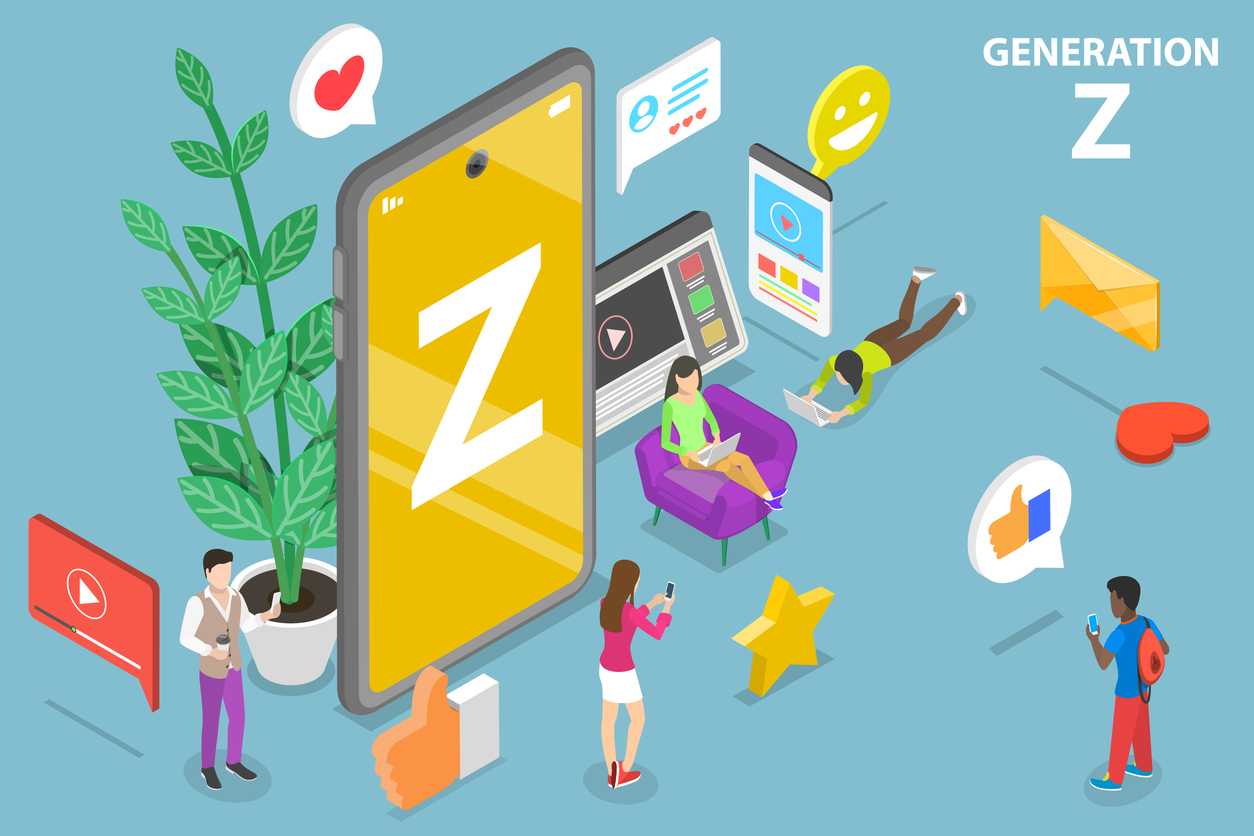1. The Values of Generation Z: Purpose, Speed, and Flexibility
Generation Z, often referred to as digital natives, places a high premium on values. Unlike previous generations, these young workers are driven by a desire to work for companies that align with their personal beliefs, such as social justice, sustainability, and corporate responsibility. They seek purpose in their work, not just profit, reflecting a deep connection between individual identity and professional life.
However, this emphasis on values is accompanied by a desire for speed. Generation Z has grown up in an era where information is instantly accessible, making them accustomed to rapid responses and immediate results. In the workplace, this expectation for speed can lead to challenges, particularly when developing expertise in complex fields. The desire for things to be fast paced can sometimes undermine the depth of focus required for mastery.
How do we nurture human capital when younger employees seem to expect instant results?
- Roya Jouzaei
This shift has a broader societal impact: How do we nurture human capital when younger employees seem to expect instant results? The challenge for employers is twofold - managing the expectations of a generation accustomed to rapid gratification while providing the tools for deep, meaningful growth in their roles.
2. Focus and Isolation: The Need for Flexibility
Generation Z's entry into the workforce has also highlighted another issue: focus. Growing up in a world of constant digital distractions - social media, notifications, and endless online content - has made it harder for this generation to concentrate for long periods. Additionally, many young professionals, particularly in fields like software development and IT, experience isolation as they work remotely or in digital-first environments. This isolation can be counterproductive, as it stifles collaboration and limits opportunities for growth through social learning.
This context calls for more flexibility in the workplace, not just in terms of working hours or location but also in how teams collaborate and learn. Traditional office environments used to offer face-to-face mentorship and networking opportunities that naturally facilitated personal growth. Post-pandemic, businesses need to rethink how to re-create these environments digitally or through hybrid models. Flexibility must extend to professional development, with personalized career maps and ongoing learning opportunities that stimulate and challenge young workers.
3. The Soft Skills Gap
While Generation Z excels in many areas - particularly in their technical abilities (hard skills) - they often lack the soft skills that are crucial for success in the modern workplace. There are social and communication areas where young professionals need guidance. For example, many project managers from Generation Z are technically proficient but struggle with stakeholder management, which requires both emotional intelligence and the ability to navigate complex social dynamics.
Senior management teams may judge them harshly for this deficiency, creating further frustration and discouragement. Unlike hard skills, which can be acquired through study and practice, soft skills are much more difficult to teach. Yet they are critical and research by the Project Management Institute shows that power skills are increasingly critical for project success.
A good project manager needs up to 70% soft skills,
- Roya Jouzaei
versus only 30% hard skills.
Conflict resolution, communication, adaptability, strategic thinking even emotional intelligence account for a larger skillset requirement than budgeting and scheduling, risk management, technical expertise etc. Unfortunately, many young professionals assume they already possess these qualities, when in reality, they lack the experience to apply them effectively.
The solution lies in structured career development plans that prioritize soft skills training alongside technical growth. Mentorship programs, regular feedback loops, and real-world problem-solving opportunities can help Generation Z employees develop the human-centric skills they need to thrive. Organizations need to invest in interpersonal skills.
4. AI: GenZ counterbalances 'dehumanization’ with communal values
The workplace is currently undergoing a transformation due to AI and automation, which are reshaping industries. This will open up new job opportunities, often in areas that require uniquely human skills such as creativity, problem-solving, and emotional intelligence.
The challenge for Generation Z is how to prepare for a future where AI is both a tool and a competitor. Workers will need to interact with AI systems, make decisions based on AI-generated data, and manage AI-driven processes. This transition is unsettling for many, creating concerns about the "dehumanization" of the workplace. There is a growing awareness that even as we embrace AI, we must ensure a counterbalance - a return to core human values and interpersonal skills.
As a result, there may be a societal shift back to the basics. Generation Z is already spearheading a return to communal values, as seen in the rise of co-living spaces and shared work environments. The individualism of previous decades is giving way to a renewed emphasis on community and collaboration, values that are vital in an increasingly digital and disconnected world. This generation is also more likely to defend and uphold these collective values, seeking out workplaces that foster human connection and teamwork.
5. Overcoming the Generation Gap: Navigating a Transitional Phase
One of the most pressing issues for organizations today is how to overcome the "generation gap" between older employees and Generation Z. The pandemic has disrupted long-standing work paradigms, and the accelerated digitization of business has created uncertainty about the future. Traditional models of career progression and workplace culture are no longer as relevant as they once were.
To bridge this gap, organizations need to foster an inclusive environment that values both the experience of older workers and the fresh perspectives of Generation Z. Personal development will be key in this process. The future workforce will require adaptable career paths, opportunities for continuous learning, and an environment that embraces change rather than fearing it.
Conclusion: A New Era of Work
Generation Z is entering the workforce at a pivotal moment in history. The rapid advancement of AI and hybrid work have transformed the workplace into something radically different from what previous generations experienced. To navigate this new landscape, businesses must invest in bridging the generational gap, providing young professionals with the soft skills they need, and preparing the workforce for the future of AI.
As this generation rises through the ranks, companies that adapt to their needs - without losing sight of the human element - will be better positioned to thrive in a world where work is more digital, values-driven, and community-oriented than ever before.



